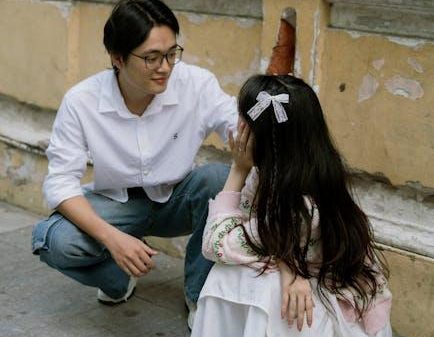In the intricate dance of modern dating, rejection can feel like an unexpected misstep, leaving us off-balance and questioning our rhythm. Yet, hidden within these moments of disappointment lies an opportunity to cultivate emotional resilience—a skill as vital as any other in our personal toolkit. As we navigate the ever-shifting landscape of romantic connections, learning to build resilience can transform rejection from a source of pain into a catalyst for growth. In this article, we will explore practical strategies and insightful perspectives to help you not only recover from dating setbacks but emerge stronger, more self-assured, and ready to embrace the dance once more.
Understanding Emotional Resilience and Its Importance
Emotional resilience is a crucial skill that allows individuals to bounce back from the setbacks that life inevitably throws their way, including the sting of dating rejection. This resilience is not about suppressing feelings but rather understanding and managing them in a healthy manner. Cultivating emotional resilience involves several key practices that can transform rejection into an opportunity for personal growth and self-improvement.
- Self-reflection: Take time to understand your emotions. Journaling or meditating can help you identify your feelings and the reasons behind them.
- Acceptance: Recognize that rejection is a part of life and does not define your worth. Embrace it as a learning experience.
- Support network: Surround yourself with positive influences. Friends and family can provide comfort and perspective.
- Mindfulness: Practice being present in the moment. This can reduce anxiety and help you focus on what you can control.
- Healthy habits: Engage in activities that promote physical and mental well-being, such as exercise, a balanced diet, and adequate sleep.
By integrating these strategies into your life, you build a buffer against the negative impacts of rejection, turning what could be a setback into a stepping stone towards a more resilient self.

Embracing Self-Compassion and Personal Growth
In the journey of healing after a dating rejection, it’s crucial to cultivate a mindset that nurtures both self-compassion and personal growth. Rejection can be a powerful teacher, illuminating areas of our emotional landscape that need attention and care. Embracing self-compassion involves recognizing that everyone experiences rejection and it’s a part of the shared human experience. Instead of allowing negative self-talk to dominate, focus on treating yourself with the same kindness you would offer a dear friend. Consider the following practices to foster self-compassion:
- Acknowledge your feelings: Allow yourself to feel the disappointment and sadness without judgment.
- Reframe your thoughts: Shift your perspective by reminding yourself that rejection doesn’t define your worth.
- Practice mindfulness: Engage in activities that bring you back to the present moment, reducing the power of negative emotions.
Personal growth often follows in the footsteps of self-compassion. Use this opportunity to explore and expand your emotional resilience. By investing in your own development, you transform rejection into a stepping stone for greater self-awareness and strength. Consider the following strategies:
- Set new goals: Focus on personal interests or hobbies that excite and fulfill you.
- Seek support: Connect with friends or support groups who can provide encouragement and understanding.
- Reflect and learn: Take time to reflect on the experience, identifying lessons that can inform future relationships.
By weaving self-compassion with a commitment to personal growth, you build a resilient emotional foundation that not only withstands rejection but thrives beyond it.
Cultivating a Supportive Social Network
When faced with the sting of dating rejection, having a robust social network can act as a powerful balm, offering solace and encouragement. Building this network involves more than just surrounding yourself with people; it requires nurturing genuine connections that uplift and support you. Reach out to friends and family who are empathetic listeners and can provide a safe space for you to express your feelings. Engage in activities that foster new friendships, such as joining clubs or attending local meetups, where you can connect with others who share your interests.
- Prioritize quality over quantity in your relationships. A few close, supportive friends can be more beneficial than a large circle of acquaintances.
- Share experiences and advice with those who have faced similar challenges, as this can offer new perspectives and coping strategies.
- Offer support in return, creating a reciprocal relationship that strengthens your bond and emotional resilience.
By , you not only find comfort in times of need but also contribute to a community where mutual growth and resilience are fostered.

Developing Mindfulness and Stress-Reduction Techniques
Building emotional resilience after experiencing dating rejection can be a transformative journey. One effective way to foster resilience is by cultivating mindfulness, which helps you stay present and engaged with your emotions without judgment. By practicing mindfulness, you can better understand and manage your emotional responses to rejection, leading to a more balanced and peaceful mindset.
Consider integrating these techniques into your routine:
- Meditation: Set aside a few minutes each day to focus on your breath and let go of intrusive thoughts. This practice can reduce stress and increase emotional clarity.
- Body Scans: Lie down comfortably and bring awareness to each part of your body, noticing any tension or discomfort. This can help release physical stress associated with emotional pain.
- Gratitude Journaling: Regularly jot down things you are grateful for, which shifts your focus from loss to abundance and positivity.
- Mindful Walking: Take a walk in nature, paying attention to the sights, sounds, and smells around you. This grounding technique can be a refreshing way to clear your mind.
Implementing these mindfulness practices can empower you to navigate the emotional aftermath of rejection with grace and resilience, ultimately leading to personal growth and well-being.








